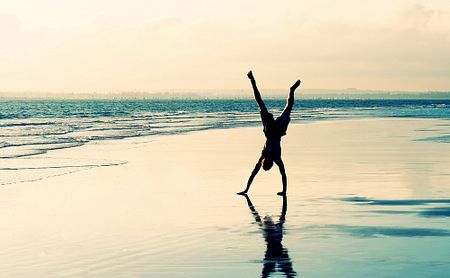Spring CMT Research Challenge Will Match Donations up to $10K
Written by |

Until April 30, the CMT Research Foundation (CMTRF) invites people to raise money supporting research into therapies for Charcot-Marie-Tooth disease (CMT), which the foundation will match up to $10,000.
Volunteer ambassadors with the foundation created the Spring CMT Research Challenge to accelerate therapy development funding for this rare condition and “to rally our community to be the change we wish to see for our futures and everyone living with CMT,” Chelsea Layton, a patient with CMT type 1A and volunteer ambassadors, wrote in a statement on the CMTRF website.
CMT currently lacks a cure and specific treatments. Available therapies focus on managing the condition to maintain quality of life. These include physiotherapy, occupational therapy, and surgery, among others.
“Over the last 10 years, I have had 10 foot surgeries due to CMT, so to say that this disease has had an impact on my life is a little bit of an understatement,” Layton said in a video.
Personal fundraisers can be set up through the foundation’s website. Proceeds will benefit the CMT Research Foundation, with 90% of money raised going directly to CMT research, according to Layton.
Layton suggests several possible ways to raise money. These include:
- holding in-person and/or virtual garage sales of clothes, household items, or other things taking up space in your life;
- donating money earned through giving lessons or auctioning art;
- asking for donations in support of personal athletic challenges, such as walking, hiking, or biking certain distances.
“This time of spring renewal is the perfect opportunity to combine the things we need and want to do, like cleaning out our closets and spending more time outdoors, with an easy and fun way to accelerate treatments and cures for CMT,” Layton wrote.
CMTRF board member Susan Canavari will match each donation up to $10,000, doubling the impact.
Those interested in more information, who need help getting started, or who simply want to brainstorm ideas with someone, are encouraged to contact Gary Donaldson, a community manager and CMT patient, at [email protected].
Research projects that the CMTRF considers funding are reviewed by the foundation’s scientific advisory board, which aims to identify those most likely to lead to treatments. Currently funded initiatives include large-scale drug screens, genetic approaches to modify the course of the disorder, and establishing accurate animal models of CMT.
CMT is a group of inherited disorders of the peripheral nervous system, the network of nerves that supply movement and sensation to the arms and legs.





